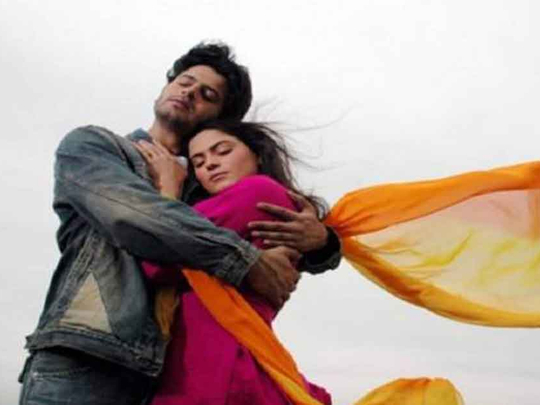
Pakistan leads by example in being the perfect supernova. Every time a catastrophic explosion aiming to eject the country of its peace, tranquillity and harmony occurs, the resilient nation ventures forth with undeterred passion and skyrockets towards sovereignty and control.
During Mohammad Zia ul-Haq’s tenure as President of Pakistan, when Western music in the country was banned, much to the people’s shock and dismay, the liberty of practising art, drama, theatre and cultural engagements was also curtailed.
Many assumed that these dictatorial laws would plunge the country into darkness, but Pakistan managed to shake off these prohibitions and restrictions and has gone from strength to strength in establishing an arts and culture industry that is rich in independent and commercial films, critically acclaimed television dramas, revered musicians and high fashion.
Over time, the evolution in Pakistani cinema has called upon numerous educated and qualified filmmakers to bring to audiences films that are relatable, thoroughly entertaining and in most cases thought-provoking. Production houses are investing humongous sums to cater to an audience that is hungry for good cinema. Movies such as Khuda Ke Liye, Muhhabbataan Sachiyaan, Ramchand Pakistani, Bol, Waar, Main Hu Shahid Afridi, Josh and Siyaah have cemented the credibility of Pakistani films not just in the country but overseas in India as well, with Bollywood actors sensing this change and lending their support to the industry.
Indian actors such as Om Puri, Nandita Das, Sidharth Malhotra and Naseeruddin Shah have been vital in encouraging and furthering the confidence of Pakistani artistes and filmmakers, helping bring out the best in
them and their films.
However, the film industry takes a backseat when compared to the popularity garnered by television soaps in Pakistan. And they are not just popular in the country but across borders in India as well and around the world, spanning continents and mustering the support of thousands of new fans. Renowned for their relatable story lines, impeccable scripts, and superb casting, serials such as Alpha Bravo Charlie, Aunn Zar, Humsafa, Zindagi Gulzar Hai, Sadqe Tumhare and Bashar Momin have helped the country’s television industry gain the recognition it deserves.
If Pakistan’s television industry is enjoying a new wave of popularity, its music industry has had an even greater impact.
With diverse elements including music from parts of South Asia as well as Central Asian, Middle Eastern and modern-day Western popular music being influencers, the nation has provided a talented group of singers, music writers and producers a credible platform to promote and celebrate their art. Nusrat Fateh Ali Khan, Atif Aslam, Ali Azmat, Abida Parveen, Rahat Fateh Ali Khan, Nauman Javed and Shafqat Amanat Ali have been successful in proving to the world that Pakistan means business when it comes to producing talent. Even as multiple influences have given rise to distinctive Pakistani sounds, the nation has also seen its concert culture being revived, paving the way for emerging and aspiring musicians to join the big names on stage and make their presence felt.
And while there are Pakistani singers who have made international audiences sway to their tunes, up-and-coming musicians have also gained mentorship through programmes such as Coke Studio, Nescafe Basement, Pakistani Idol, Levis Live and Patari Tabir.
Fashion has also carved its own niche in Pakistan with amazing design honouring Pakistani tradition while complementing modern weft and weave, even as elaborate year-round fashion shows help the nation’s growing textile and clothing industries thrive.
This is the face of the country that the world needs to see and acknowledge. Brimming with talent, Pakistan is truly a hub of culture and the arts.






